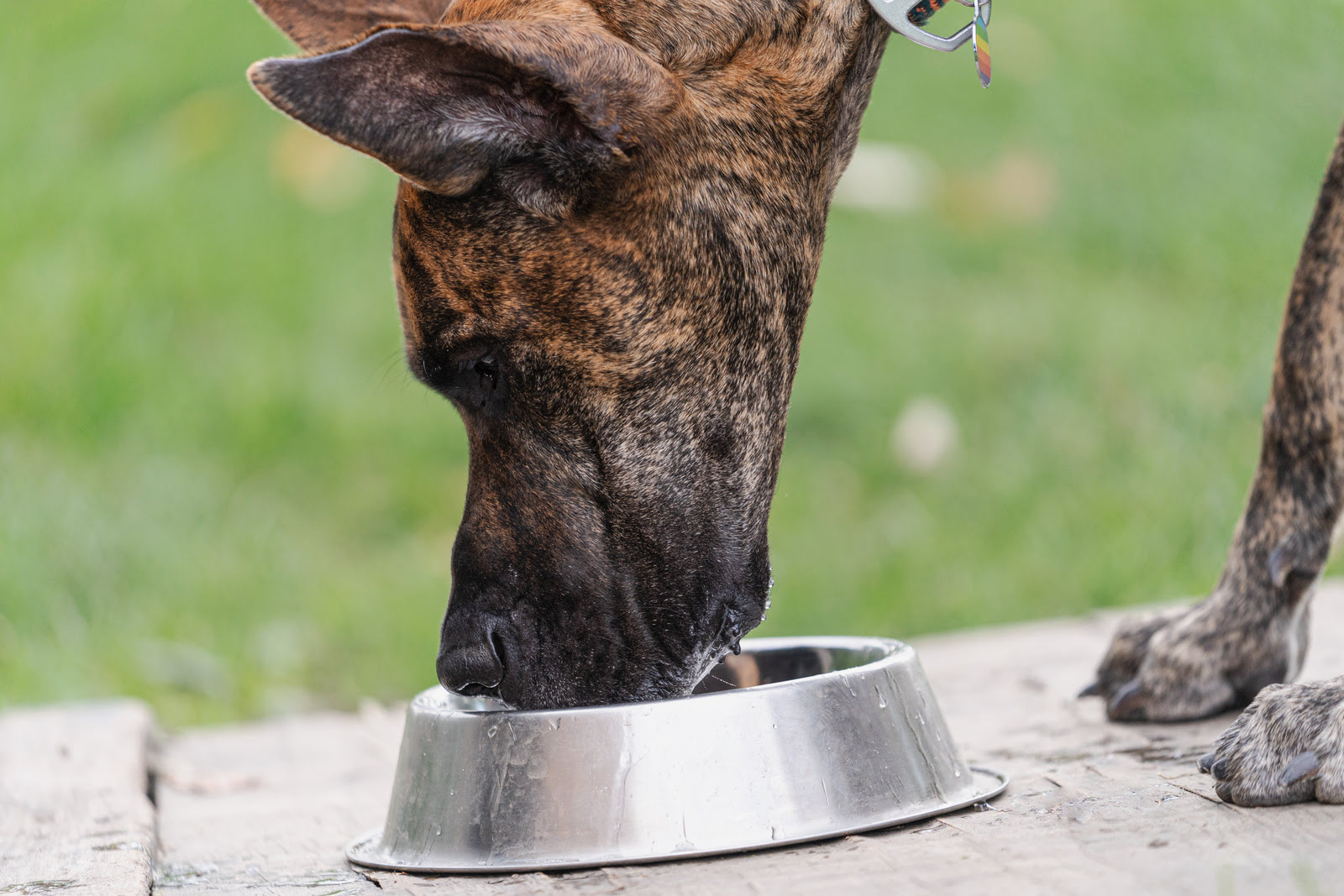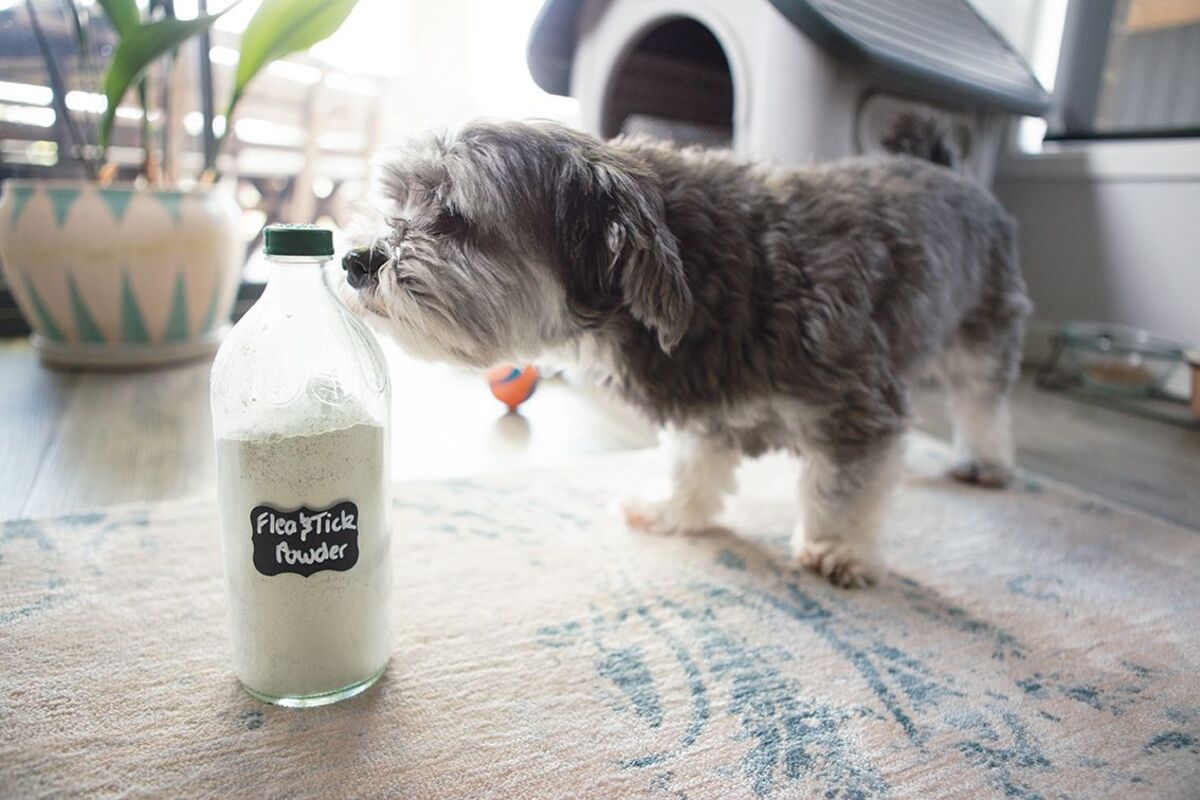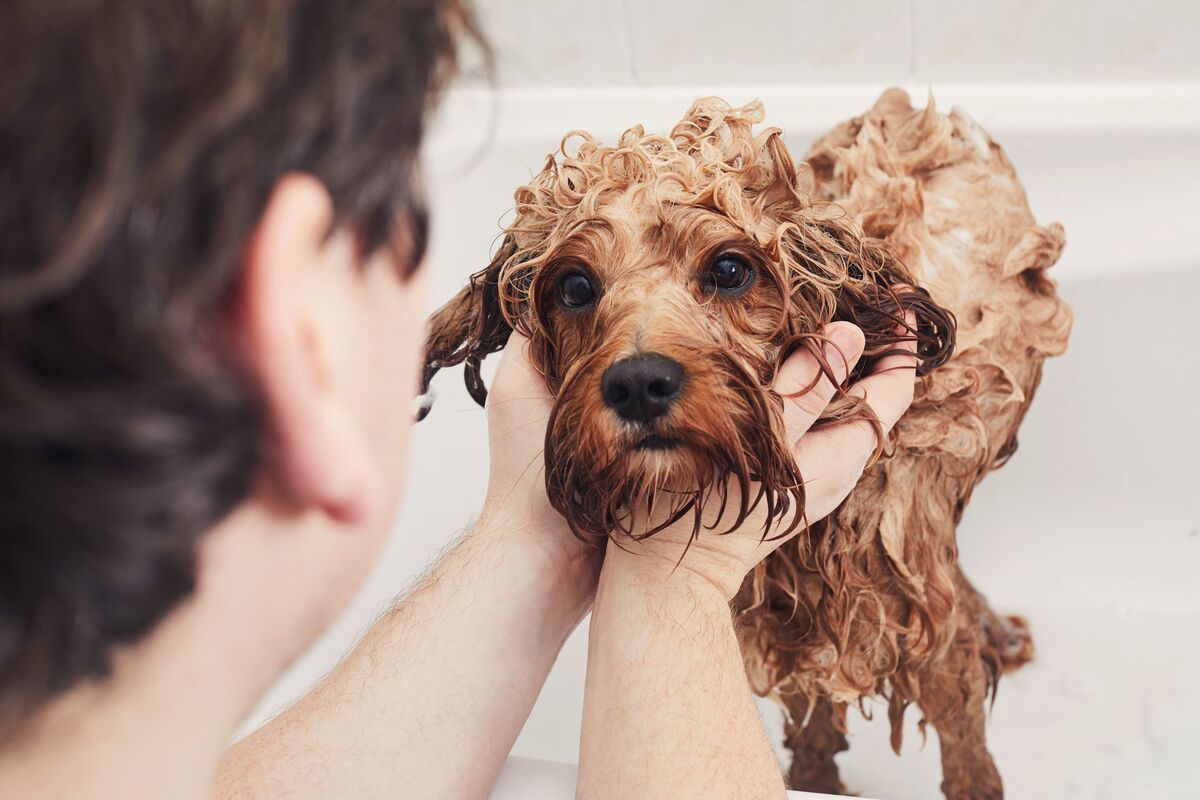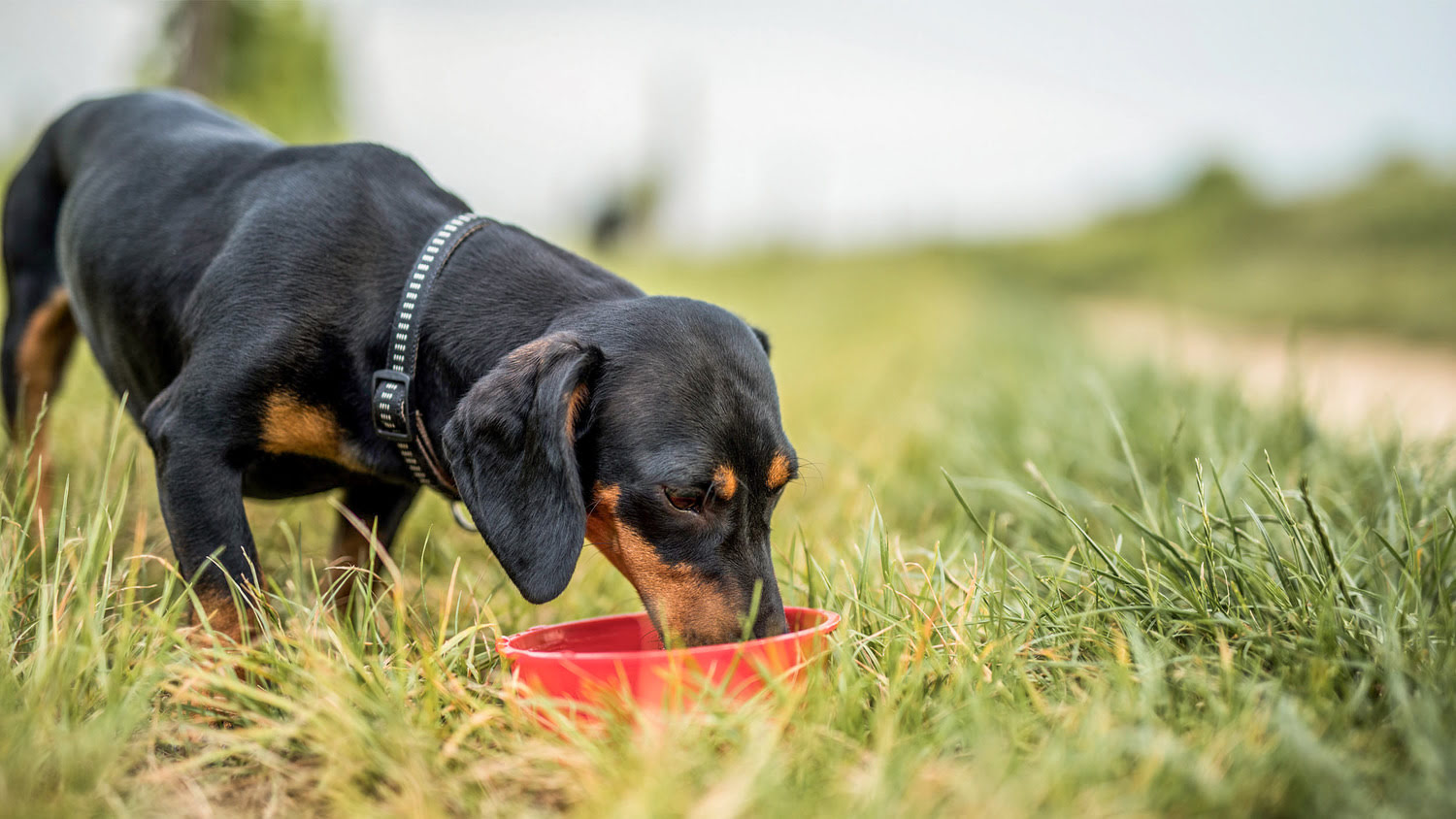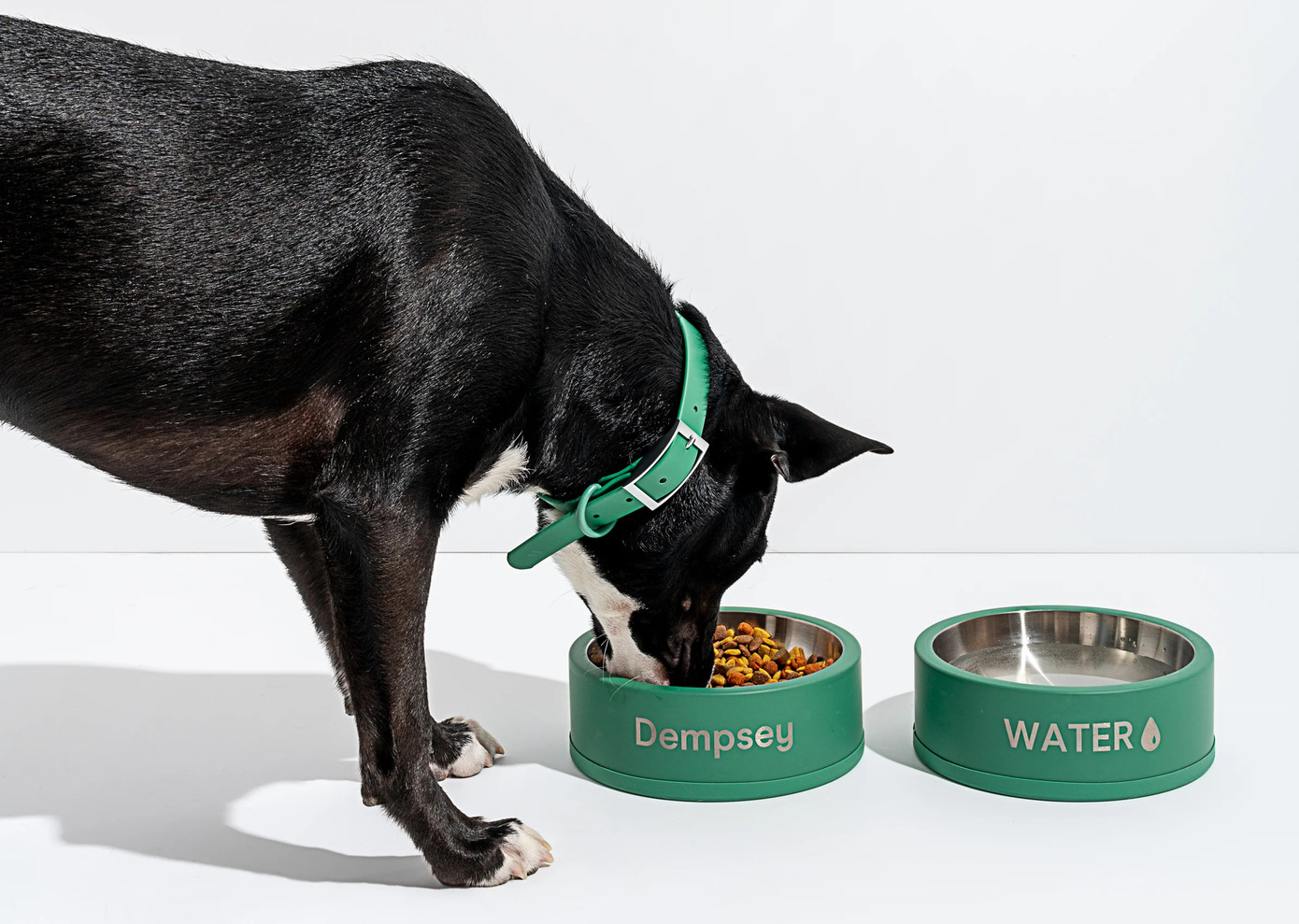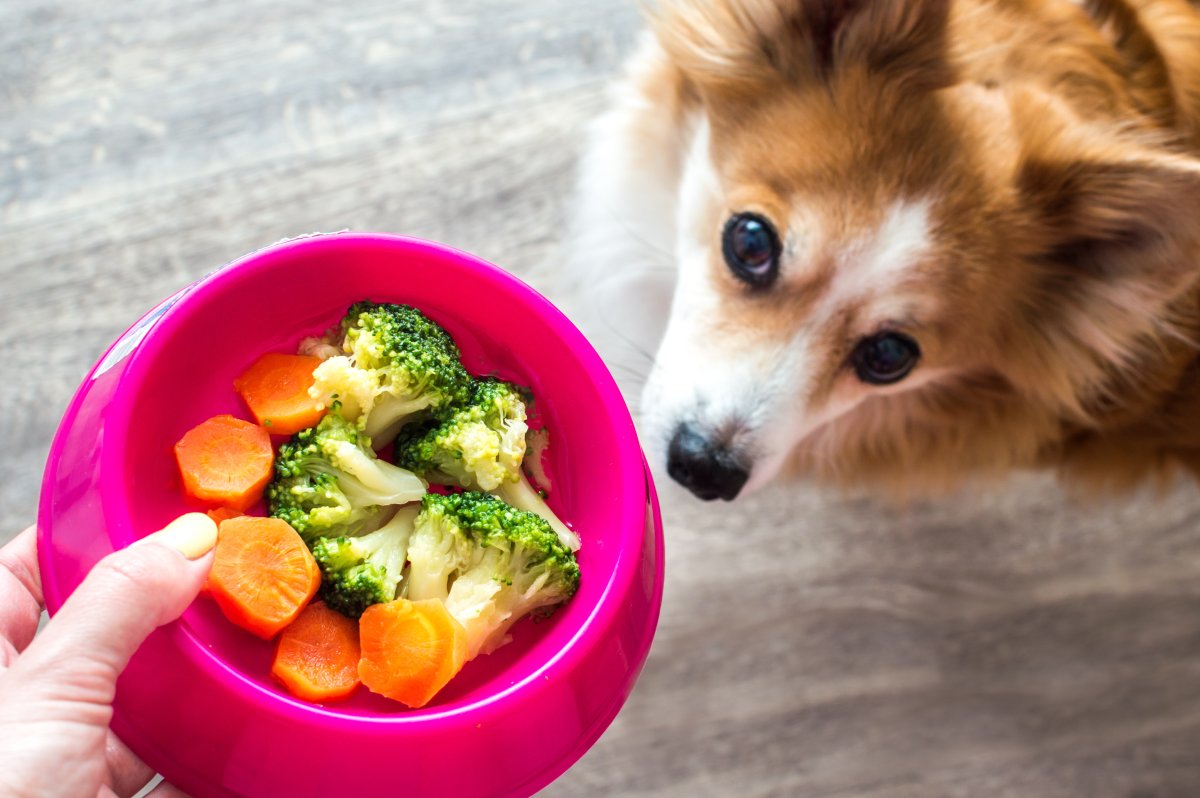Home>Health & Wellness>Common Health Issues>What Can You Feed A Dog To Help With Fleas


Common Health Issues
What Can You Feed A Dog To Help With Fleas
Modified: February 21, 2024
Learn about common health issues in dogs and discover what you can feed your dog to help with fleas. Find natural remedies and tips to keep your furry friend healthy and happy.
(Many of the links in this article redirect to a specific reviewed product. Your purchase of these products through affiliate links helps to generate commission for Pawsomeoldies.com, at no extra cost. Learn more)
Table of Contents
Introduction
Fleas are a common nuisance for dogs, causing discomfort, itching, and potential health issues. As a responsible pet owner, it's essential to take proactive measures to protect your furry friend from these pesky parasites. While there are various commercial flea control products available, you may be interested in exploring natural and holistic approaches to complement your dog's overall well-being.
In this article, we will delve into the realm of natural foods that can help repel fleas, boost your dog's immune system, and support their skin and coat health. By incorporating these foods into your dog's diet, you can provide them with a holistic defense against fleas while promoting their overall health and vitality.
Understanding the impact of fleas on dogs is crucial for devising an effective strategy to combat these pests. Additionally, by harnessing the power of natural foods, you can take a proactive and preventive approach to safeguarding your dog's well-being. Let's explore the world of natural remedies and nourishing foods that can make a positive difference in your dog's life.
Understanding Fleas and Their Impact on Dogs
Fleas are tiny, wingless parasites that survive by feeding on the blood of animals, including dogs. These pesky insects not only cause immense discomfort to our furry companions but can also lead to various health issues. When fleas infest a dog, they can trigger intense itching, skin irritation, and allergic reactions. In severe cases, flea infestations can result in anemia, especially in puppies or small dogs, due to the loss of blood from continuous feeding by the fleas.
Moreover, some dogs are hypersensitive to flea saliva, which can exacerbate the itching and discomfort, leading to a condition known as flea allergy dermatitis. This allergic reaction can cause hair loss, inflamed skin, and hot spots, further compromising the dog's well-being.
In addition to the physical discomfort, fleas can also have a significant impact on a dog's mental and emotional state. The constant itching and irritation can lead to restlessness, anxiety, and even behavioral changes. Dogs may become agitated, aggressive, or withdrawn as a result of the distress caused by flea infestations.
Furthermore, fleas are vectors for various diseases and parasites, posing a serious threat to a dog's health. They can transmit tapeworms, cause flea-borne typhus, and carry infectious agents that lead to severe illnesses. Therefore, it is crucial to address flea infestations promptly and effectively to protect the overall well-being of our beloved canine companions.
Understanding the detrimental impact of fleas on dogs underscores the importance of implementing preventive measures and seeking natural solutions to repel these parasites. By incorporating specific foods into a dog's diet, it is possible to create an internal environment that is less hospitable to fleas, thereby reducing the risk of infestation and mitigating the associated health concerns.
Natural Foods to Help Repel Fleas
Incorporating natural foods into your dog's diet can serve as a proactive approach to repelling fleas and promoting their overall well-being. Certain foods contain properties that are known to deter fleas, making them valuable additions to your dog's nutrition plan. Here are some natural foods that can help repel fleas:
1. Garlic
Garlic is renowned for its natural flea-repelling properties. It contains compounds, such as allicin, that create an odor that fleas find unappealing. When consumed by dogs in moderate amounts, garlic can help create an internal environment that deters fleas. However, it's crucial to consult with a veterinarian to determine the appropriate dosage for your dog, as excessive garlic intake can be harmful.
2. Brewer's Yeast
Brewer's yeast is a popular natural supplement known for its ability to repel fleas. It contains B vitamins, particularly thiamine, which produces an odor that is unpleasant to fleas. Incorporating brewer's yeast into your dog's diet, whether in the form of supplements or nutritional yeast, can help create an internal environment that discourages flea infestations.
3. Apple Cider Vinegar
Apple cider vinegar is a versatile natural remedy that can also aid in repelling fleas. When added to a dog's drinking water or used as a topical spray (diluted with water), apple cider vinegar can create an acidic skin pH that is unfavorable for fleas. Additionally, the scent of apple cider vinegar is known to deter these pests, making it a valuable natural deterrent.
4. Carrots
Carrots are not only a nutritious snack for dogs but also contain properties that can help repel fleas. The high levels of beta-carotene in carrots are converted into vitamin A, which promotes healthy skin and a strong immune system. By supporting your dog's overall health, carrots contribute to creating an internal environment that is less hospitable to fleas.
5. Coconut Oil
Coconut oil is celebrated for its numerous health benefits for dogs, including its potential to repel fleas. When added to a dog's diet, the lauric acid in coconut oil is metabolized into monolaurin, which has natural antibacterial, antiviral, and antifungal properties. This can contribute to a healthier skin and coat, making it less attractive to fleas.
Incorporating these natural foods into your dog's diet can contribute to creating an internal environment that is less conducive to flea infestations. However, it's important to consult with a veterinarian before making significant changes to your dog's diet, especially if they have underlying health conditions or specific dietary requirements. By leveraging the natural flea-repelling properties of these foods, you can take a holistic approach to safeguarding your dog's well-being while minimizing the risk of flea infestations.
Foods to Boost Your Dog's Immune System
A robust immune system is essential for a dog's overall health and vitality. By incorporating specific foods into your dog's diet, you can support their immune function and enhance their ability to ward off infections and diseases. Here are some nourishing foods that can help boost your dog's immune system:
Read more: What Can You Use For Fleas On Dogs
1. Blueberries
Blueberries are packed with antioxidants, including vitamin C and phytochemicals, which play a crucial role in supporting the immune system. These powerful antioxidants help combat free radicals and reduce oxidative stress, thereby bolstering the body's natural defense mechanisms. Additionally, the anti-inflammatory properties of blueberries contribute to overall immune health, making them a valuable addition to your dog's diet.
2. Spinach
Spinach is a nutrient-dense leafy green that provides an array of essential vitamins and minerals, including vitamin A, vitamin C, and iron. These nutrients are vital for immune function, as they support the production of white blood cells and help regulate the body's immune response. By incorporating spinach into your dog's meals, you can fortify their immune system and promote overall well-being.
3. Turmeric
Turmeric contains a bioactive compound called curcumin, which exhibits potent anti-inflammatory and antioxidant properties. By adding a small amount of turmeric to your dog's food, you can help modulate their immune response and reduce inflammation, thereby enhancing their immune function. Additionally, curcumin has been shown to have antimicrobial and antiviral effects, further contributing to immune support.
4. Yogurt
Plain, unsweetened yogurt is a rich source of probiotics, which are beneficial bacteria that support gut health and immune function. The probiotics in yogurt help maintain a healthy balance of gut flora, which is integral to a strong immune system. By including yogurt in your dog's diet, you can promote a healthy gut microbiome and bolster their immune defenses.
5. Lean Protein
Incorporating lean sources of protein, such as chicken, turkey, or fish, into your dog's diet is essential for supporting their immune system. Protein is necessary for the production of antibodies and immune cells, playing a pivotal role in defending the body against pathogens. By ensuring that your dog receives adequate protein, you can optimize their immune function and promote overall resilience.
By incorporating these immune-boosting foods into your dog's diet, you can provide them with the essential nutrients and compounds needed to support their immune system. Additionally, a balanced and wholesome diet, rich in a variety of nutrients, is fundamental for maintaining overall health and well-being. Prioritizing your dog's nutritional needs and immune support can contribute to a vibrant and thriving life.
Foods to Support Your Dog's Skin and Coat Health
A dog's skin and coat health are indicative of their overall well-being, reflecting the state of their internal health and nutritional status. By incorporating specific foods into your dog's diet, you can promote healthy skin and a lustrous coat, addressing potential issues such as dryness, itchiness, and dull fur. Here are nourishing foods that can help support your dog's skin and coat health:
1. Salmon
Salmon is a powerhouse of omega-3 fatty acids, particularly EPA and DHA, which are renowned for their skin-nourishing properties. These essential fatty acids play a pivotal role in maintaining healthy skin and a glossy coat, while also exerting anti-inflammatory effects that can alleviate skin irritations and allergies. By adding salmon to your dog's diet, you can enhance their skin barrier function and promote a vibrant coat.
2. Sweet Potatoes
Sweet potatoes are rich in beta-carotene, a precursor to vitamin A, which is crucial for skin health. Vitamin A supports cell turnover and the maintenance of healthy skin tissues, contributing to a supple and resilient skin barrier. Additionally, the antioxidant properties of beta-carotene help combat oxidative stress, protecting the skin from damage and promoting a radiant coat.
Read more: What Can You Spray On A Dog To Kill Fleas
3. Flaxseeds
Flaxseeds are a valuable source of alpha-linolenic acid (ALA), a plant-based omega-3 fatty acid that supports skin and coat health. ALA aids in reducing inflammation and promoting moisture retention in the skin, addressing issues such as dryness and itchiness. By incorporating ground flaxseeds into your dog's meals, you can provide them with essential fatty acids that contribute to a healthy and lustrous coat.
4. Eggs
Eggs are a nutrient-dense food that offers a range of benefits for skin and coat health. They are rich in biotin, a B-vitamin that plays a crucial role in maintaining healthy skin and coat. Biotin supports the production of keratin, a protein essential for strong and resilient hair, while also contributing to overall skin health. Additionally, eggs provide high-quality protein, which is fundamental for the growth and repair of skin and coat tissues.
5. Pumpkin
Pumpkin is a valuable addition to your dog's diet for promoting skin and coat health. It is packed with fiber and essential nutrients, including beta-carotene, potassium, and vitamin C, which collectively support skin hydration, elasticity, and overall health. The natural antioxidants in pumpkin help combat oxidative stress, contributing to a healthy and radiant coat.
By incorporating these skin-nourishing foods into your dog's diet, you can address specific nutritional needs that contribute to healthy skin and a glossy coat. Additionally, ensuring that your dog receives a balanced and wholesome diet, rich in essential nutrients, is fundamental for maintaining their overall well-being. Prioritizing your dog's skin and coat health through nutrition can lead to a vibrant and thriving life, enhancing their quality of life and well-being.
Conclusion
In conclusion, the well-being of our canine companions is intricately linked to their nutrition and overall health. Fleas, as persistent pests, can pose significant challenges to a dog's physical comfort, mental well-being, and overall health. By understanding the impact of fleas on dogs and exploring natural remedies, such as specific foods, we can take proactive steps to safeguard our furry friends from these pesky parasites.
The incorporation of natural foods that help repel fleas, boost the immune system, and support skin and coat health can significantly contribute to a dog's holistic well-being. Foods such as garlic, brewer's yeast, apple cider vinegar, carrots, and coconut oil offer natural flea-repelling properties, creating an internal environment that is less hospitable to infestations. Furthermore, immune-boosting foods like blueberries, spinach, turmeric, yogurt, and lean protein play a vital role in enhancing a dog's immune function, empowering them to ward off infections and diseases.
Additionally, prioritizing foods that support skin and coat health, such as salmon, sweet potatoes, flaxseeds, eggs, and pumpkin, can address specific nutritional needs that contribute to healthy skin and a lustrous coat. By nourishing our dogs with these beneficial foods, we can promote their overall well-being, resilience, and vitality.
It is essential to emphasize that while natural foods can offer valuable support in repelling fleas and promoting a dog's health, consulting with a veterinarian is crucial before making significant dietary changes. Each dog has unique nutritional requirements and potential sensitivities that must be taken into consideration.
In essence, by embracing a holistic approach to our dogs' well-being, encompassing nutrition, preventive measures, and natural remedies, we can create an environment that fosters their health and happiness. Through the power of natural foods and a deep understanding of our canine companions' needs, we can embark on a journey of proactive care, ensuring that they thrive and flourish in a flea-free and vibrant existence.
